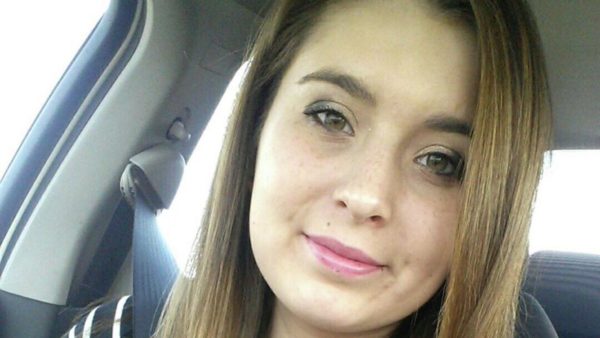
- Details
- By Native News Online Staff
WASHINGTON — The U.S. Senate unanimously passed Savanna’s Act, S.227, and the House Judiciary Committee also unanimously passed its version of the bill, H.R. 2733, out of committee.
The legislation next heads to the floor for a vote of the full House of Representatives.
Savanna’s Act is named for Savanna LaFontaine-Greywind, who was brutally murdered in 2017. LaFontaine-Greywind was a pregnant 22-year-old tribal citizen of the Spirit Lake Nation in North Dakota.
Savanna’s Act passed the Senate in 2018, but was blocked in the House. As Section 2 of Savanna’s Act notes, Indigenous women face more violence than any other group. According to the National Institute of Justice, at least 84 percent of Indigenous women have been the target of sexual or other violence in their lifetimes.
In addition to passing Savanna’s Act, the Senate also passed the Not Invisible Act of 2019, a bill that will allow for coordination of prevention efforts between the Secretary of the U.S. Department of the Interior and victim service organizations.
After the Senate votes, Senator John Hoeven (R-ND), Chairman of the Senate Committee on Indian Affairs, released the following statement:
“We worked to secure Senate approval for these bills, which will ensure that communities and law enforcement are able to better respond to cases of missing and murdered Native Americans. By increasing protections for missing and murdered native peoples, and refining the coordination between the U.S. Department of Justice and Indian Tribes, these bills will help improve public safety throughout Indian country, including in my home state of North Dakota.”
U.S. Senator Tom Udall (D-N.M.), vice chairman of the Senate Committee on Indian Affairs, weighed in on the passage of the legislation as well.
“The missing and murdered Indigenous women crisis is appalling and demands the attention of Congress and the entire nation,” Udall said. “Savanna’s Act and the Not Invisible Act are important first steps for improving the federal MMIW response and making Native communities stronger and safer.”
Highlights of both bills are as follows:
Savanna's Act:
- Requires the Department of Justice (DOJ) to provide training to law enforcement on how to record Tribal enrollment information of MMIW victims in federal databases.
- Mandates that the Attorney General consult with Tribes on how to improve federal databases in light of the MMIW crisis.
- Requires the creation of regional guidelines that federal, Tribal, state, and local law enforcement agencies can use to improve response to MMIW cases.
- Requires DOJ to include MMIW data in an annual report to Congress.
The Not Invisible Act of 2019:
- Requires the Department of the Interior’s (DOI’s) Bureau of Indian Affairs-Office of Justice Services to designate a point person to coordinate violent crime prevention efforts in Native communities across all relevant federal agencies.
- Directs DOI and DOJ to establish a commission composed of relevant federal agencies, Tribal leaders, MMIW survivors, families impacted by MMIW, and other stakeholders to develop recommendations on improving the federal MMIW response.
- Directs DOI and DOJ to submit a formal response to the commission’s recommendations to Congress within 90 days of receiving the recommendations.
More Stories Like This
Native News Weekly (August 25, 2024): D.C. BriefsNavajo Nation Mourns the Passing of Former Vice President Rex Lee Jim
Deb Haaland Earns Endorsement From Communications Workers of America Local 7076
University Soccer Standout Leads by Example
Two Native Americans Named to Democratic Congressional Campaign Committee's“Red to Blue” Program
Help us defend tribal sovereignty.
At Native News Online, our mission is rooted in telling the stories that strengthen sovereignty and uplift Indigenous voices — not just at year’s end, but every single day.
Because of your generosity last year, we were able to keep our reporters on the ground in tribal communities, at national gatherings and in the halls of Congress — covering the issues that matter most to Indian Country: sovereignty, culture, education, health and economic opportunity.
That support sustained us through a tough year in 2025. Now, as we look to the year ahead, we need your help right now to ensure warrior journalism remains strong — reporting that defends tribal sovereignty, amplifies Native truth, and holds power accountable.
 The stakes couldn't be higher. Your support keeps Native voices heard, Native stories told and Native sovereignty defended.
The stakes couldn't be higher. Your support keeps Native voices heard, Native stories told and Native sovereignty defended.
Stand with Warrior Journalism today.
Levi Rickert (Potawatomi), Editor & Publisher

